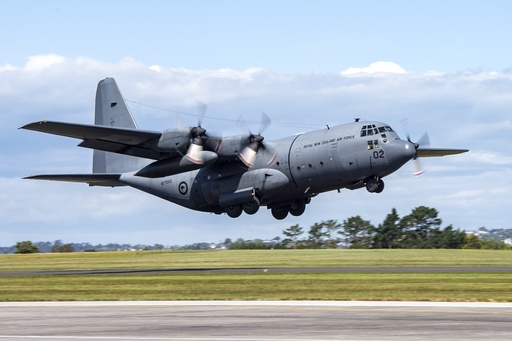
WELLINGTON, New Zealand — The capital of Vanuatu has been left without water following a devastating magnitude 7.3 earthquake that struck the South Pacific nation, causing widespread destruction. This calamity, which unfolded on Tuesday, has resulted in confirmed fatalities and injuries, with expectations that these numbers may rise as rescue operations continue for those trapped in debris.
Early Wednesday, the government’s disaster management office reported that 14 individuals had lost their lives; however, this figure was later clarified to nine verified deaths according to the main hospital’s report. A representative indicated that these numbers could increase as search efforts persist amid the aftermath of the quake. Nearly 200 individuals have sought medical treatment for various injuries stemming from the disaster.
Among the deceased are two Chinese citizens, as reported by China’s Xinhua News Agency, with details being shared by an official from the Chinese embassy in Vanuatu.
Rescue operations commenced immediately after the quake, with search teams working tirelessly to navigate the debris of collapsed structures while contending with dust and oppressive heat. Some survivors have been found, but as efforts proceed, many remain unaccounted for and others have already been discovered deceased.
The disaster has severely disrupted telecommunications, complicating the ability of residents to confirm the safety of family members. Although some service providers have attempted to restore phone connections, the service has been sporadic. Furthermore, internet capabilities have not yet resumed due to damage to the submarine cable that supports it.
The earthquake, which struck at a depth of 57 kilometers (approximately 35 miles) and occurred roughly 30 kilometers (19 miles) from the capital, has led to the cancellation of an initial tsunami warning issued shortly after the quake. Nevertheless, the area has continued to experience significant aftershocks, contributing to the chaos.
Katie Greenwood, the Asia-Pacific head of the International Federation of Red Cross, indicated from Fiji that the full extent of casualties remains unclear, adding that grassroots reports suggest the death toll may worsen.
Vila Central Hospital, the principal medical facility in the area, suffered considerable damage and has relocated patients to a military encampment. Clement Chipokolo, the Vanuatu country director with World Vision, highlighted that the healthcare services—which were already overstretched prior to the earthquake—are now completely overwhelmed.
Moreover, the lack of water has become a pressing issue in Port Vila following the destruction of two significant reservoirs, as per the National Disaster Management Office. Local resident Milroy Cainton noted that people are forming long lines in shops to purchase limited quantities of bottled water, indicating a prevailing concern for water over other utilities like electricity.
Health concerns are rising, with UNICEF reporting an increase in cases of diarrhea among children, suggesting consumption of contaminated water. Officials have advised residents in areas where water supply has resumed to boil it before use.
Approximately ten buildings in the downtown core were heavily damaged during the earthquake, with many collapsing during a busy lunch hour. As rescuers focus their efforts where they believe survivors may be located, the situation remains dire, and many individuals are still trapped under the wreckage.
Michael Thompson, who operates a tourism business in the region, has been actively assisting in the rescue efforts and shared a video on social media depicting the frantic environment, urging people to provide tools and water to aid those undertaking the hazardous recovery work.
Both local officials and eyewitness accounts point to Port Vila as the area experiencing the most extensive damage, with nearby villages also suffering landslides. The government has raised alarms about the stability of three bridges amid ongoing heavy rains.
In addition to infrastructural damage, several diplomatic missions were impacted, including those of the United States, United Kingdom, France, and New Zealand, in a building that was largely destroyed. The U.S. State Department confirmed that its staff is safe, but the embassy building is no longer operational. This office had only recently opened in July as part of an initiative to bolster U.S. presence in the Pacific.
The aftermath of the earthquake has also caused severe disruptions to Port Vila’s seaport and airport, hindering aid and economic recovery efforts in a nation reliant on agricultural exports and tourism. Commercial flights have been suspended for another 72 hours, although the runway is still accessible for humanitarian operations as assessed by French engineers who have arrived by helicopter. Military aircraft from Australia and New Zealand are expected to deliver rescue teams and essential supplies.
Dan McGarry, a reporter residing in Vanuatu, noted that a significant landslide had occurred at the international shipping terminal, with the government indicating that the main wharf is closed. Vanuatu’s geographical positioning on a tectonic boundary makes it susceptible to frequent earthquakes above magnitude 6, and while much of the construction is designed to resist seismic events, the extent of damage in this instance is grave.
